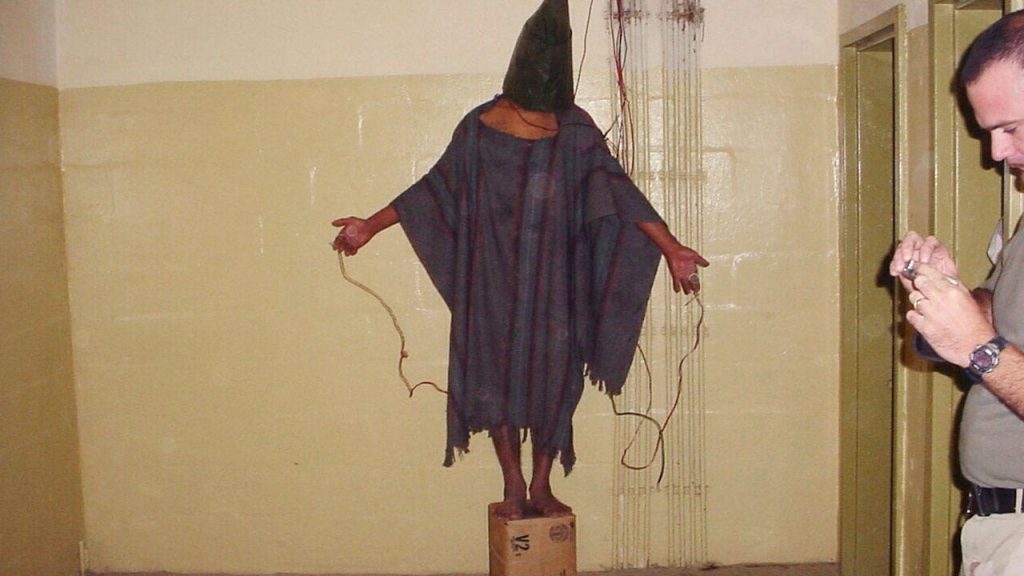Detainees from Abu Ghraib prison in Iraq have alleged abuse and are testifying in front of a U.S. jury for the first time in a lawsuit against military contractor CACI. The trial, delayed for over 15 years, is moving quickly, with former detainees describing abuse reminiscent of the scandal that erupted 20 years ago. Salah Al-Ejaili, a former Al-Jazeera journalist, testified about beatings, being stripped naked, and other forms of torture during his time at Abu Ghraib in 2003. Two other detainees are also suing CACI, accusing the company of contributing to their torture by sending civilian interrogators as part of an Army contract.
CACI’s lawyer questioned whether the plaintiffs can prove they were abused, or if CACI interrogators inflicted abuse on them, claiming that the U.S. military oversaw the interrogators’ conduct. He argued that there is no evidence that CACI employees engaged in wrongdoing, as the soldiers who were convicted of crimes in military trials were the ones responsible for the abuse. The plaintiffs’ lawyer, however, argued that CACI interrogators conspired with military police by urging them to abuse detainees, and that the company is liable for the torture suffered by the detainees.
The trial in U.S. District Court in Alexandria is now moving quickly, with a jury seated, opening arguments heard, and key witnesses, including a former CACI interrogator, Torin Nelson, and former Army Cpl. Charles Graner, testifying. Nelson testified about his concerns over the actions of some of his colleagues, while Graner, through a recorded video deposition, stated that civilian interrogators gave him instructions on handling detainees. Al-Ejaili’s emotional testimony described the abuse he endured, including being naked in a cold cell and handcuffed to a pipe, highlighting the impact on the detainees and the importance of telling their stories.
The defense for CACI includes questioning the plaintiffs’ ability to prove their abuse and whether CACI interrogators inflicted abuse on them, while also emphasizing that it was the U.S. military, not the company, that oversaw the interrogators’ conduct. The plaintiffs argue that CACI interrogators conspired with military police by encouraging abuse, and that the company is liable for the torture endured by the detainees. Testimony from Army generals concluded that there was a void in the chain of command filled by civilians, with at least one CACI interrogator potentially being held accountable for instructing military police to set up conditions amounting to physical abuse.
Despite the legal wrangling and multiple appeals that delayed the trial for over 15 years, the proceedings are now moving rapidly, with a focus on the testimony of survivors of the abuse at Abu Ghraib. The emotional accounts from former detainees, including Al-Ejaili, reveal the lasting impact of the abuse suffered at the prison. The trial serves as an opportunity for the plaintiffs to seek justice and hold accountable those responsible for the torture they endured, shedding light on one of the most disturbing events in recent American history.


